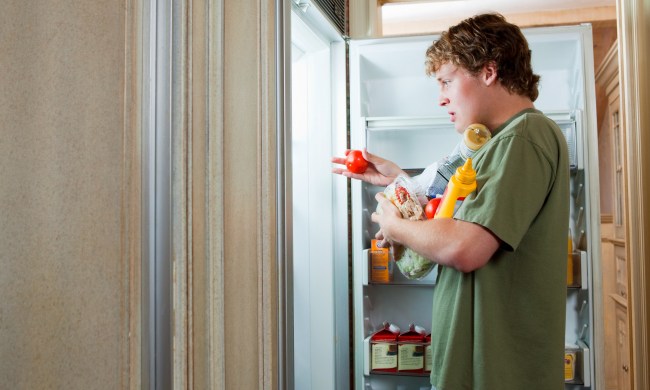Naptime is essential to a toddler’s health and well-being. They need about 10-12 hours of sleep at night and about two to four hours during the day in the form of a nap. This feat can be rather challenging especially when your toddler refuses sleep.
Here’s why longer naps are so good for toddlers and what you can do to help your little one sleep longer during naptime.

Why longer naps are so good for toddlers
It’s indisputable that longer naps are good for a toddler’s health. Why? Naps give your child downtime that they so desperately need in the middle of the day. Napping during the day also helps with your toddler’s mental and physical development that’s crucial during the early childhood stage.
Longer naps also make sure your child doesn’t become overtired. If you’re a parent, chances are you know the signs of an overtired toddler:
- Crying
- Not wanting to eat or drink
- Constant fidgeting
- Pumping their fists
- Hyperactive behavior
- Meltdowns and outbursts
Being overtired negatively affects a toddler’s mood. What’s more, being overtired makes it that much more difficult for them to go to sleep (and sleep through the night) during bedtime.
Naps also help toddlers learn, especially with regard to memory. It helps improve their attention span, too. Recent research has shown children who don’t get enough sleep have higher rates of being overweight for their age.
Longer naps are also helpful for parents, too. It will give you a much-needed break during the day to do what you need to do, be it chores around the house, work, or simply relax for a few hours.
And don’t be afraid that napping during the day will keep them up at night — it’s actually the opposite. If a toddler is overtired, they’ll have a difficult time falling asleep compared to a toddler who’s well-rested thanks to an earlier nap.
When they’re not well-rested, they can become irritable and stressed, too. This can also keep them awake at night.
Just make sure the nap isn’t too close to bedtime. Naps should be taken during the afternoon to ensure it’s not making it more difficult for your toddler to fall asleep at night.
If a toddler starts associating bedtime with being afraid, it can be challenging to help them fall asleep.
You’ll also probably notice a behavior change if your toddler misses their nap. However, plans change, and life happens. If your little one misses their nap, although it might not seem like a big deal, you should prepare for meltdowns, outbursts, tantrums, more whining than usual, and more fussing. In other words, a missed nap has the potential to make your toddler more cranky that evening or the next day.
What you can do to help your toddler take longer naps
The secret to getting your toddler to take longer naps is a good naptime routine. Of course, it’s better if you start a naptime routine early on in their toddlerhood, but if you haven’t yet, now is the time.
Learn to recognize signs that your toddler is tired. These could include:
- Being clumsy
- Being clingy
- Being fussy, especially with food or drink
- Crying
- Needing attention often
- Not playing with toys
Try to put your toddler down for their nap when they’re sleepy but not asleep — this technique helps toddlers learn how to fall asleep themselves without the help of a parent rocking or soothing them to sleep.

A good starter routine could go something like this: You’ll start by encouraging your toddler to wind down. This could mean reading a story quietly together or quietly doing a puzzle, as opposed to active play. Activities like playing games, watching TV, or noisy play will make putting your toddler down for a nap even harder.
Make sure you start winding down and preparing them for their nap around the same time every day, so they slip into the routine easier.
Wherever your toddler sleeps — be it in your room or theirs — make sure it’s quiet, dark, set to a cool temperature, and doesn’t have many things that could distract your little one.
Although sticking with a naptime routine isn’t always easy, it’s essential for your child’s well-being. Many toddlers benefit from naptime and even enjoy it, but some are upset by the idea of taking a nap. It could be that they’re afraid of missing something.
It’s true that you can’t force a child to sleep, but you can encourage it. If your toddler really won’t fall asleep, don’t beat yourself up over it. Instead, initiate some quiet time. This could mean playing quietly, singing a lullaby together, or reading a book. These activities can sometimes make a young child feel sleepy and lead into naptime with less stress.


